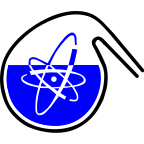Speaker
Description
Nuclear forensic science is an evolving discipline which aims at re-establishing the history of nuclear material of unknown origin by using measurable material properties. The main focus of nuclear forensic science is on chemical and radiochemical parameters, such as isotope ratios, chemical composition, chemical impurities or products of radioactive decay for deriving information on the intended use of the material or its place and date of production. Such information may be relevant for non-proliferation, for countering nuclear terrorism, for combating illicit trafficking of nuclear or other radioactive materials and for nuclear security in general. Obviously, this may involve law enforcement aspects as well as scientific aspects. In order to provide credible hints on the origin and the history of the material, useful parameters or a combination of several parameters (referred to as "nuclear forensic signature") need to be identified. The paper will review recent advances in method development and in the identification of relevant signatures. Moreover, the area of traditional forensic analysis of radioactively contaminated evidence will be discussed. Case studies (from real incidents) will illustrate the wealth of information that can be obtained through nuclear forensic investigations.

